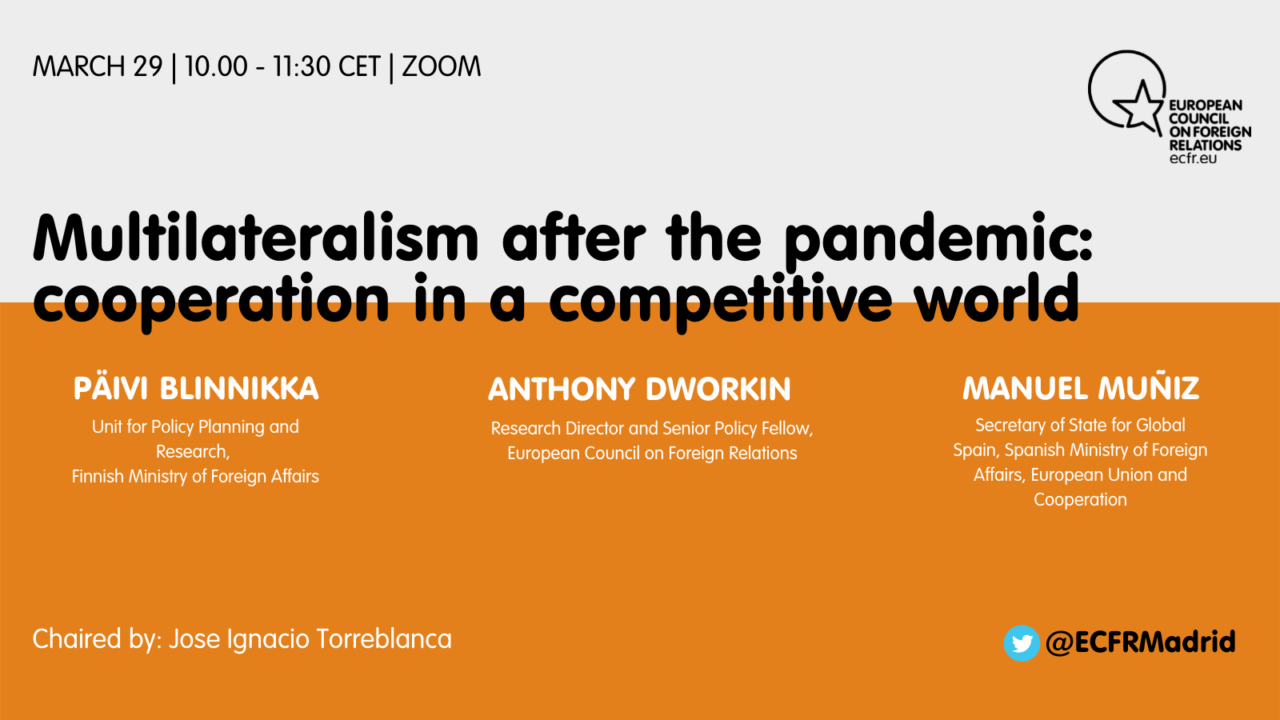Multilateralism after the pandemic: cooperation in a competitive world
Guests
Päivi Blinnikka, Senior Adviser, Ambassador, Unit for Policy Planning and Research, Finnish Ministry of Foreign Affairs
Anthony Dworkin, Research Director and Senior Policy Fellow, European Council on Foreign Relations
Manuel Muñiz, Secretary of State for Global Spain, Spanish Ministry of Foreign Affairs, European Union and Cooperation
Chaired by
José Ignacio Torreblanca, Head of Madrid Office and Senior Policy Fellow, European Council on Foreign Relations
The COVID-19 pandemic has brought a changing international order into sharp focus, highlighting both our heightened interdependence and also the obstacles to global cooperation. As we move into a new phase in the fight against the virus, we have an opportunity to not only improve our collective response to health challenges, but to spearhead a new multilateral agenda focused on protecting global public goods more broadly. Beyond health, this will require effective cooperation in a number of areas of heightened international linkages such as climate, tech, and trade. Yet it is precisely those domains that are becoming sites of growing geopolitical competition between powers with vastly different values and interests. Europe needs a strategy for multilateralism that is adapted to this newly competitive world.
To prepare for to this end, the discussion articulated around Anthony Dworkin’s paper on the challenges of pursuing cooperation in a competitive world as well as Europe’s future strategy for multilateralism, framed in the post COVID-19 era.

